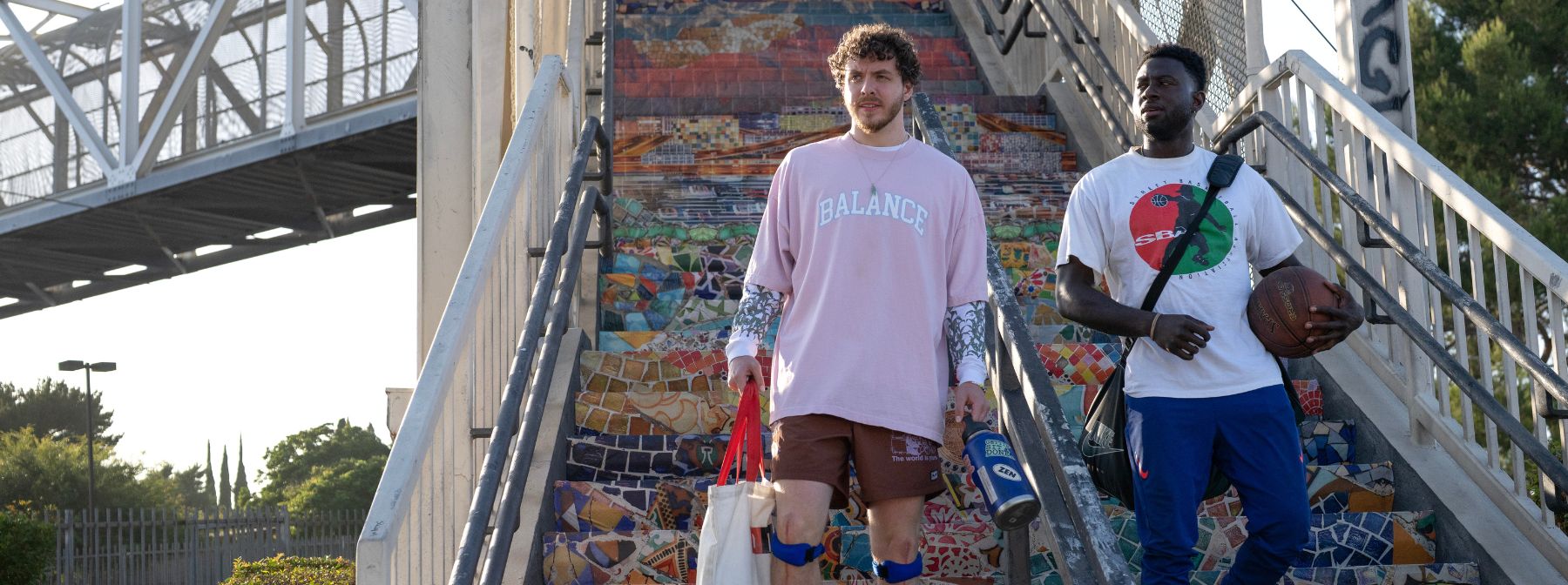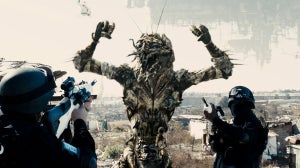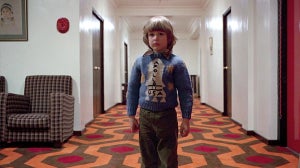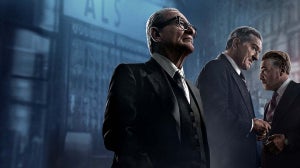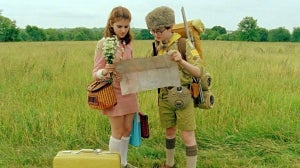
Whatever you do, don't call the new iteration of White Men Can't Jump a "remake".
"I've got a hip hop background, so I don't like to say we remade a movie - we sampled one", laughed director Calmatic. "We took a couple of elements, chopped them up, changed the pitch then added a whole new bassline to make it feel current.
"The things that people say are modern classics are new things that feel familiar, so whilst we have a bunch of new characters and a new storyline, we have to use those locations that are familiar to everyone, which are associated with the original movie. It's fun to pay homage by painting a new picture in those same settings, which was a dream come true as a fan."
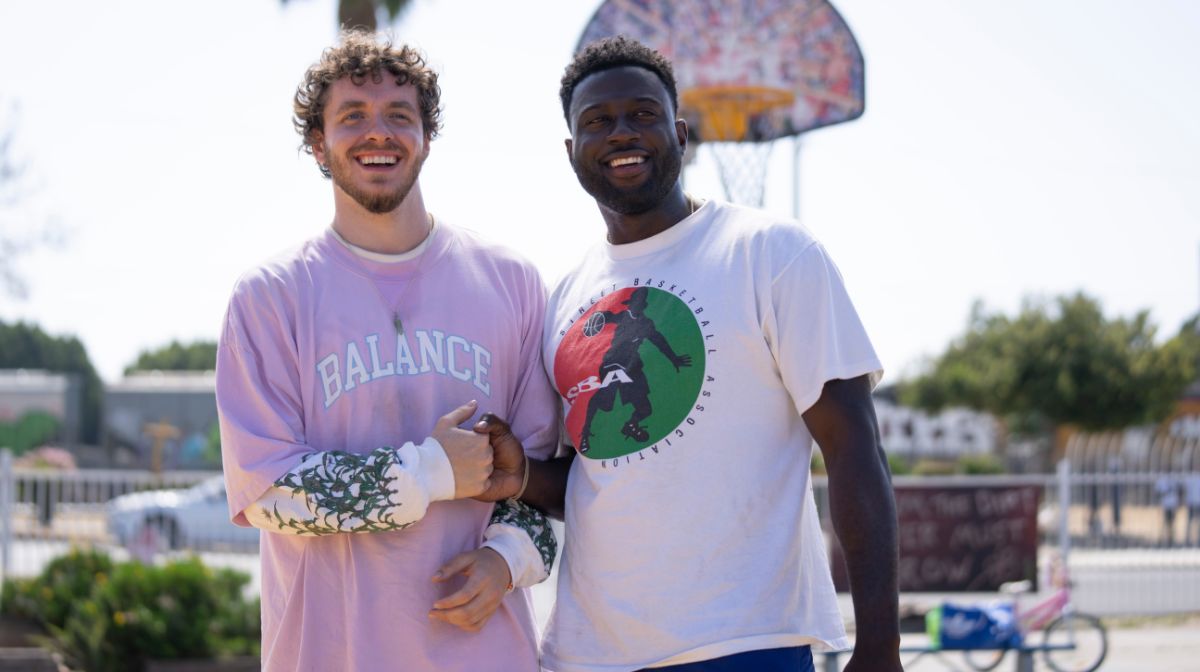
The original take on White Men Can't Jump from 1992 saw Woody Harrelson play Billy Hoyle, a basketball pro who made a living hustling other players across L.A who he tricked into thinking he was bad because he was white. After swindling player Sidney Deane (Wesley Snipes), the pair eventually teamed up to take on other players, reaping the rewards as they conned their way around the city's courts.
The new version sees rapper Jack Harlow and Teen Wolf star Sinqua Walls play new versions of those characters; Harlow's Jeremy the eccentric swindler, Walls' Kamal Allen the former youth basketball protégé who has long been out of the limelight.
Being born and raised in Los Angeles, the director was passionate about putting his own, more authentic spin on one of the most famous L.A movies of the nineties.
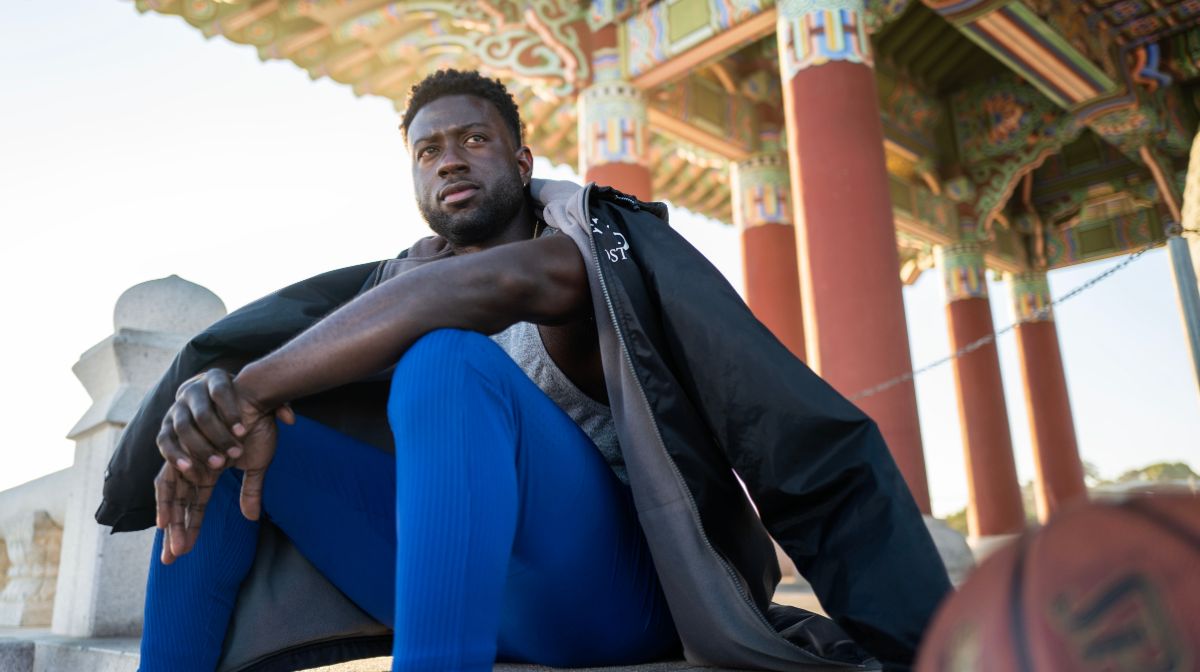
He explained: "I feel like, especially in Hollywood movies, you see L.A. presented in so many different ways. But as someone who lives here, I feel that there's a whole L.A the world hasn't seen yet; the L.A I grew up in, which is really influential, especially to the world of basketball.
"Players like James Harden and Russell Westbrook went to middle school here, and they have these weird, distinctive ways of playing the game that are very specific to how it's played here. So making this movie was a chance to show the world my L.A."
Star Sinqua Walls agrees with this assessment, claiming this is what helps the movie stand out from its predecessor.
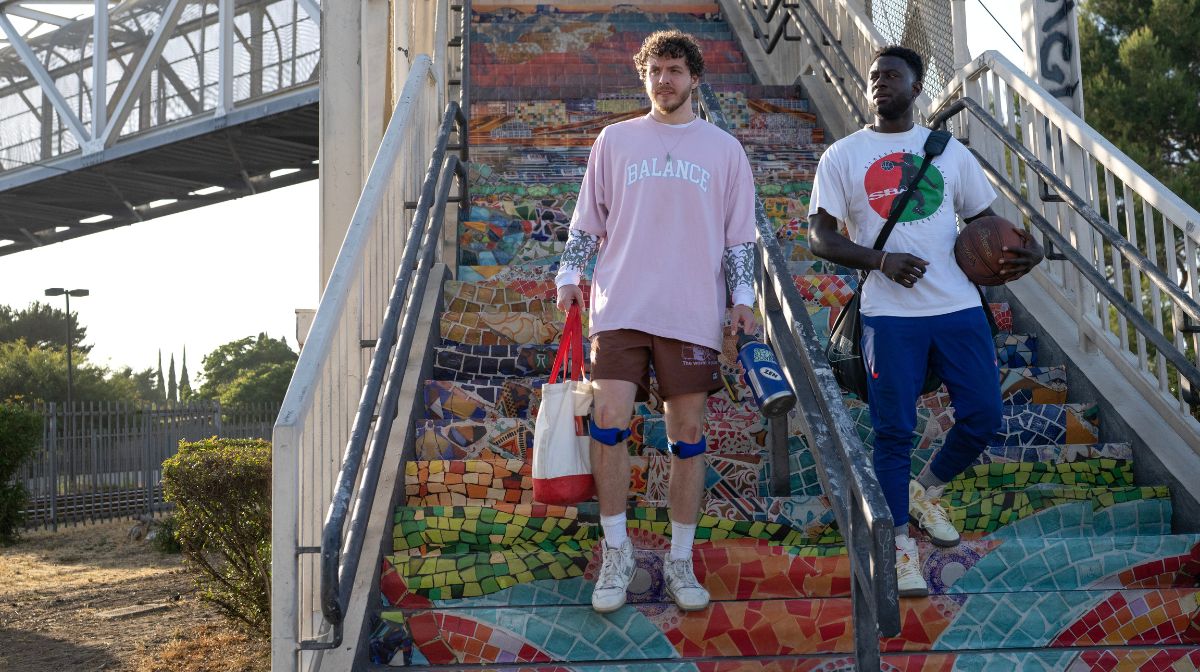
"The 1992 movie did something really great with showing Venice and the world of streetball - but Calmatic can shoot L.A better than anybody else, which updates it for now, as you see parts of the city the original never touched.
"He captures how vibrant the culture is in these streets; if you know people from Compton, or Watts, or Crenshaw and how they move, then this feels accurate. It informs these characters to the point that the city becomes its own character that lives in the story, which is different than how this was told the first time around."
Accurately depicting those original ways of playing the game, forged by players who grew up in the city's courts, was crucial to the success of the film, as Walls argued: "Making sure the basketball was authentic was the most important part.
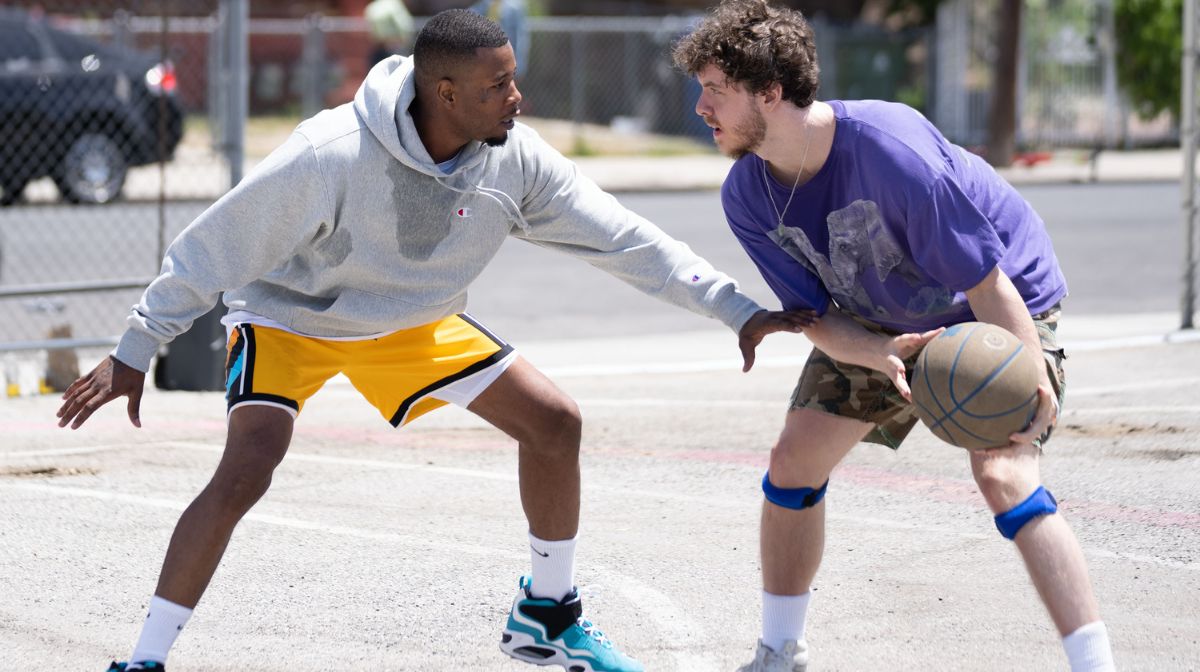
"That's something that Calmatic really cared about, and he was really critical about what to do every time. A lot of the movie moves at a pace where we had to do single takes, and those movements don't work unless someone can play basketball to the highest level, which is why the playing in the movie is so good - we all had to be extra critical of it.
"It was fun to step in and use things that I'd already done for years. I had been playing ball since I was six years old, so I could move in that space naturally."
The other aspect of 2023's White Men Can't Jump that distinguishes it from the original movie is the focus on male mental health, unflinchingly depicting the struggles Kamal faces both on and off the court.
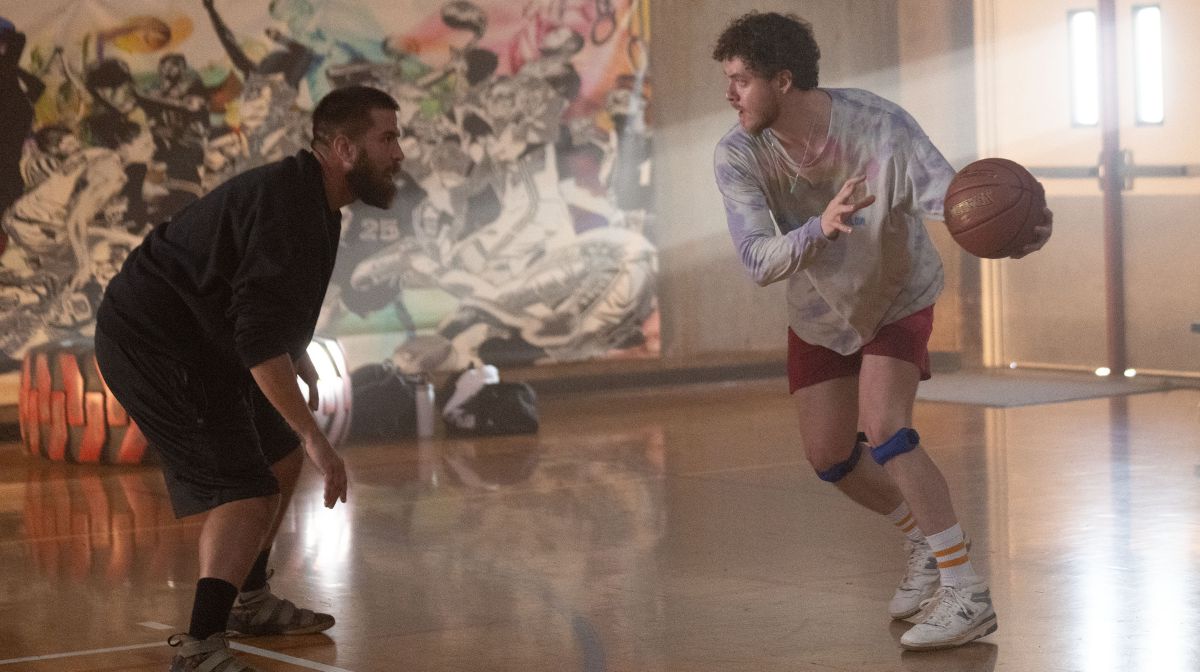
Walls continued: "The 1992 film was an elemental depiction of what was going on in the culture, and now, our culture has progressed to a place where that conversation about mental health is important - being present for someone's struggles, whilst also holding them accountable where necessary.
"That's what Jeremy does for Kamal, he tells him "basketball is your therapy." I know so many people who don't know the thing that can be the therapeutic tool for their growth, that can help them have peace, and it was really important to infuse that.
"I think what you see as people get more comfortable with their own mental journey, they're allowed to open themselves up and be open to so many other paths of their journey with people. And that's what Jeremy and Kamal go through together."
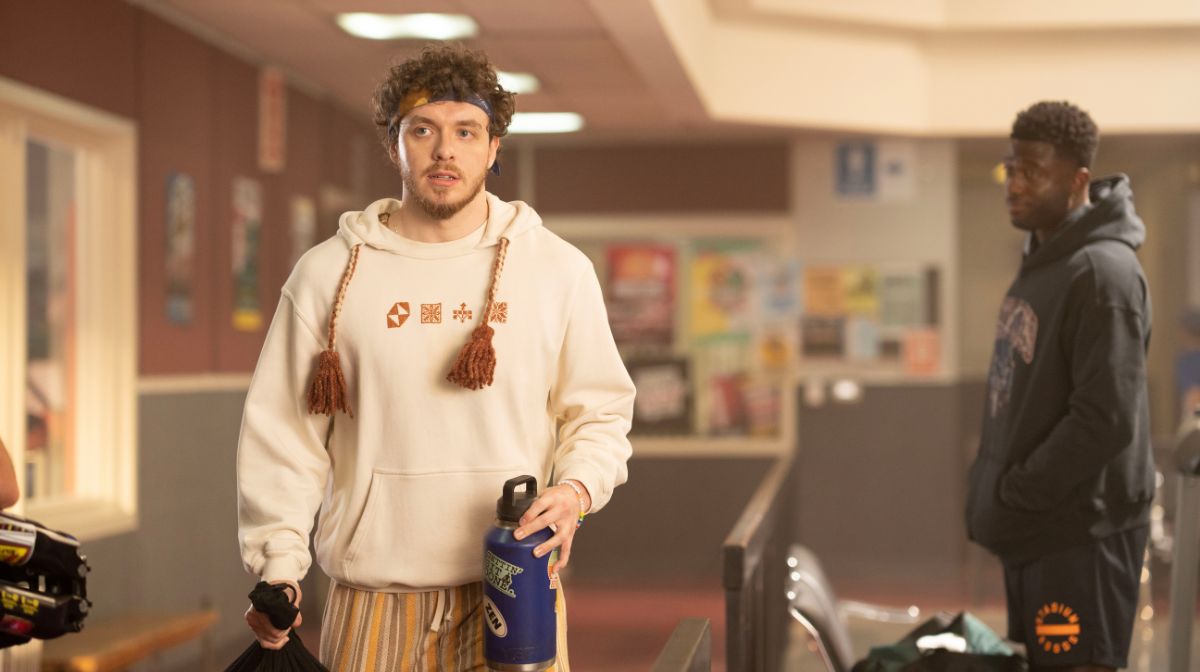
In the other lead role, the stakes were higher, as Harlow had to prove himself in his debut performance - leading a splashy studio remake, no less. It turned out to be the best acting school he could have asked for, and it's clearly worked, as he's already signed on to star alongside Matt Damon in an upcoming heist thriller.
He said: "I'm thankful that I joined a group of people that were so humble and willing to let me learn and be patient with me and be willing to teach. I feel like I arrived into an egoless environment; I was the least experienced person and everyone just let me shine and try things and gave me the room to give my opinion.
"I've got to shout out Cal for that, he would always listen if I felt strongly about something. I was all in on his lead vision, but I appreciated that this was my first movie and people cared about what I thought - it was a seamless experience."
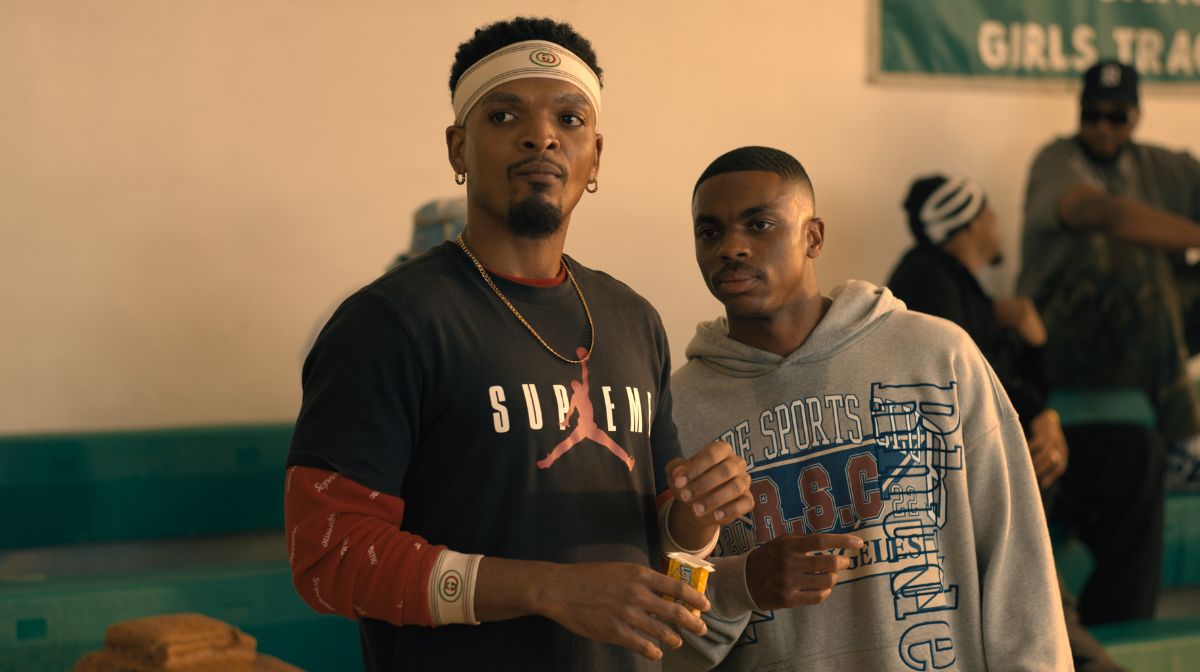
The film is also notable as one of the final screen performances of Lance Reddick, appearing here as Kamal's father Benji, who suffers from MS. Everybody who worked with Reddick has attested to his commitment to every role he was given, no matter how small, and it was no different here.
"As soon as his name came up as an option for the role, we knew we had to go with Lance", Calmatic continued. "And when he came in for meetings, he'd already done tons of research on his character's condition, he'd met up with doctors and even interviewed somebody who suffered from it, so when he came to set, he was locked in.
"When you're a director watching actors, you're always looking for ways you can play a scene different, but he was perfect with every take. I quickly realised he was one of the best actors I've ever worked with, and it's a shame he's not here with us - but to be in his presence definitely left an imprint."
White Men Can't Jump is streaming on Disney+ from Friday, 19th May.
For all things pop culture, follow us on Facebook, Instagram, Twitter and TikTok.

